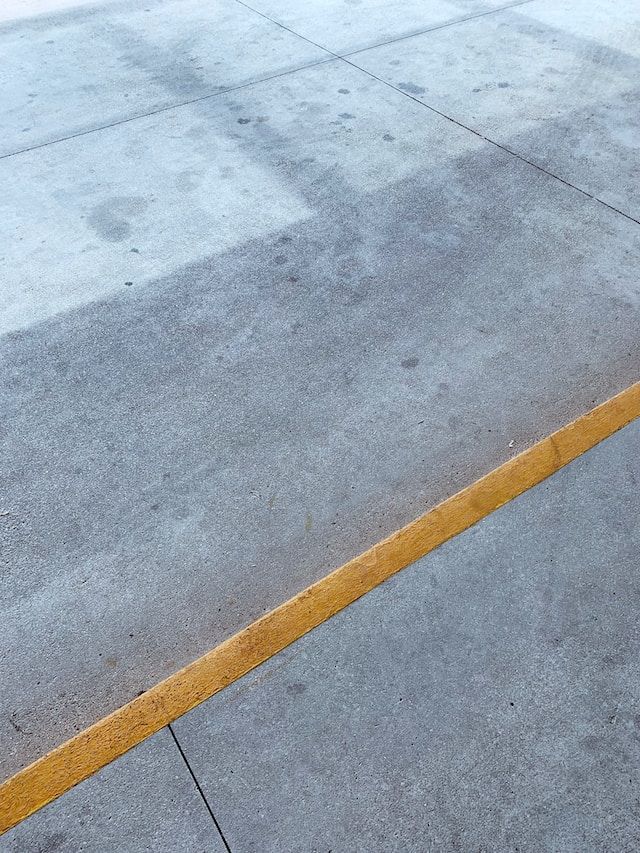Asphalt is commonly used in road construction and resurfacing projects. It provides a smooth surface that helps to reduce vehicle damage and tire wear.
Scrap tire rubber can be incorporated into asphalt paving mixes in wet and dry processes. These rubber-modified binders are called crumb rubber modifiers. The cationic emulsified asphalt presents the best performance in terms of high temperature rutting resistance, low-temperature cracking resistance and water stability.
1. Water-Based Coating
Unlike their solvent-based counterparts, which contain chemicals that evaporate into what is known as Volatile Organic Compounds (VOC), water-based coatings use water as the liquefying agent. This means they have far fewer health and environmental concerns. In fact, with the growing need to reduce pollution and embrace sustainable manufacturing practices, this type of coating has become the norm.
Water-based sealants are a great choice for asphalt concrete because they provide many of the same benefits as their oil-based counterparts. These include preventing cracks, filling voids and protecting your pavement from oxidation. They also protect the surface of your driveway from oil spills, grease and other chemical contaminants. The difference is that you can clean up a water-based coating with water, as opposed to using spirits or acetone which are often needed to clean a solvent-based paint.
The majority of blacktop sealants are water-based, including refined coal tar, asphalt emulsion and latex-modified asphalt emulsion. These sealants are created by suspending the binder in either water or an emulsifier, which is a substance that allows one liquid to remain suspended in another without mixing them together.
This type of coating is becoming more popular due to its environmental concerns and the ease of application. Water-based coatings have the advantage of drying much faster than their solvent-based counterparts, and they emit far less odor. They are also non-toxic, making them safer for the environment and workers.
Another reason that this particular type of sealant is becoming more popular is because it helps with the urban heat island effect. The asphalt used to pave our streets traps heat during the day and releases it at night, which can lead to an increase in air temperature. A water-based treatment called cool pavement reflects more sunlight and absorbs less, which can help reduce this phenomenon.
2. Oil-Based Coating
Oil-based sealcoats contain petroleum distillates and other organic solvents like ketones, esters, glycol ethers, alcohols, and resins. They provide a tough, flexible coating that prevents moisture and oils from penetrating into asphalt concrete and damaging it. These coatings are also highly resistant to UV rays, chemicals, and abrasion, making them the ideal choice for exterior asphalt surfaces that receive more abuse than those found in the interior of buildings.
These types of sealants typically have a high sheen that provides an attractive appearance to driveways and parking lots. They dry much quicker than water-based products, making them a popular option for homeowners who want to protect their investment. However, they do take longer to clean up and often have a strong odor. They are also less durable than water-based polymer sealers, so they will not last as long.
This type of asphalt pavement sealer is commonly used in industrial settings because it is resistant to abrasion and chemical spills. It also contains additives to help resist the penetration of oil and gasoline, which helps protect the surface from damage that can be caused by leaks and spills.
If you choose to use an oil-based sealant, you should make sure that the weather is dry before you apply it. Barricade the area to avoid traffic while you apply the product, and be sure to power wash your driveway or parking lot prior to sealing. You should also oil spot prime any areas that have oil stains and patch deep cracks before applying the seal coat.
Once applied, this type of pavement sealant is extremely durable and can last up to five years. It is recommended that it be reapplied every two to three years for normal usage, or every year for heavy traffic. Seal coating also makes the pavement more flexible, which helps prevent it from cracking and crumbling. For best results, the sealant should be reapplied once it is fully cured (after about three weeks) to achieve maximum longevity. If you need assistance deciding on the right asphalt sealant for your property, please do not hesitate to contact Hallman Asphalt. We are committed to excellence and can help you select the perfect product for your specific needs.
3. Rubber-Based Coating
Adding recycled rubber to asphalt concrete improves the material’s durability and resistance to rutting, cracking, and aging. It also decreases the energy required to make and maintain asphalt roads. However, using tire rubber for asphalt pavement requires significant investment and extensive processing of the raw material. Scientists have been working to hone this technology to reduce energy use and harmful emissions while improving pavement life span and strength. They have experimented with adjusting processing temperatures and combining various salvaged ingredients, such as recycled cooking oil, plastic, and cigarette butts.
Crumb rubber is added to hot-mix asphalt mixtures in two ways: either as a component of the aggregates or as a modifier of the binder. Including this material as a part of the aggregates is called the dry process; it was first developed in the 1960s. The rubber is ground and vulcanized, then incorporated into the aggregates with the help of a binding agent. The result is an asphalt-rubber composite, often referred to as RUMAC.
Although the abrasion properties of a rubber-modified mixture are improved, its tensile strength and stiffness remain lower than traditional blends with high percentages of SBS or WMA. Its ductility is lower, as well. It is not readily able to flow into and seal cracks in the pavement, and its sprayability when applying membranes by conventional means is poor.
A newer technology uses rubberized bitumen as a binder. The rubber is reprocessed with the addition of a thermal decomposer to extract the residual oils and to separate a soluble polymer from the crumbs. This product is a petroleum-free binder, and it is marketed as warm mix asphalt.
The process of blending and spraying is simpler than with the dry process. The resulting mixture is less viscous, and it can be applied at a lower temperature without losing workability. This product is often called an asphalt-rubber mixture or a warm mix, and it can be used for overlays or as a crack filler.
Another type of product uses chlorinated rubber paint. This product is a low-cost, environmentally friendly alternative to the traditional solvent-based products. It is a durable, resilient coating that is ideal for a wide variety of applications and surfaces, including bridges, driveways, and parking lots. It is also a good choice for use in the construction of stress-absorbing membranes or as a chip-seal layer over existing pavement.
4. Chemical Coating
Asphalt pavements are very durable but they can become damaged by the sun’s UV rays, water, and chemicals that come from oil or gasoline. Sealcoating is the process of adding a thin liquid layer to your asphalt driveway or parking lot that will help protect it from these elements and make it look like new again.
There are several types of chemical coatings but the most popular is a coal-tar or asphalt emulsion. It is a stable dispersion of refined tar or asphalt, sand and fillers with a heavy paint consistency. The emulsions can be fortified with rubbers, specialty chemicals and additives to increase their resistance to environmental factors and to improve rutting, shovel and abrasion resistance. They are generally odorless and easy to apply.
These products are often used for off-street, high traffic areas like airport aprons and runways, service stations, garages, home driveways, etc. They are also used to protect pavement that carries very low traffic. Because these pavements don’t have the advantage of continuous rolling traffic that kneads and re-adhesises the oxidized surface layers, over time they can become exposed to weather and chemical elements which eventually degrade the binding cement. Once the binder is exhausted aggregates start unraveling and minor surface cracks develop that widen and deepen over time.
A well-designed, properly applied and maintained chemical conversion coating will provide a strong, long-lasting barrier that is tough enough to withstand the weight of vehicular and pedestrian traffic as well as all weather conditions. In addition, this type of coating provides superior skid and slip resistance making it very safe for pedestrians and vehicles.
Prior to the application of any sealcoating it is essential that the pavement be cleaned, blown off and primed with asphalt crack sealer. The coating can be applied at a thickness of several to over 150 mils. A good quality sealcoating should have a high tensile strength as measured by the pipe cap pull off test and a high shear resistance as measured with a needle shear tester. It should also have excellent adhesion and be free of pinholes, holidays and crazing cracks.

